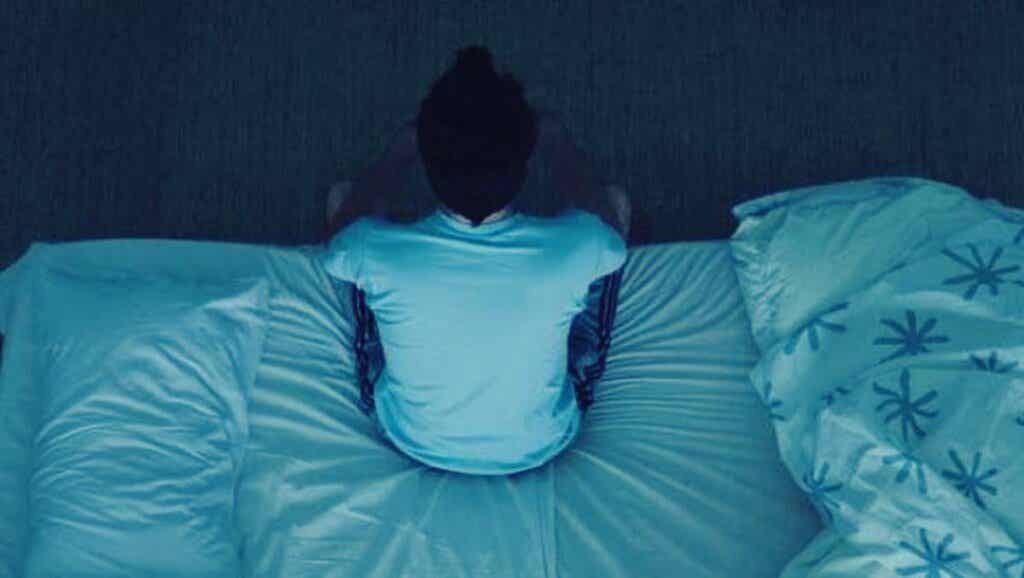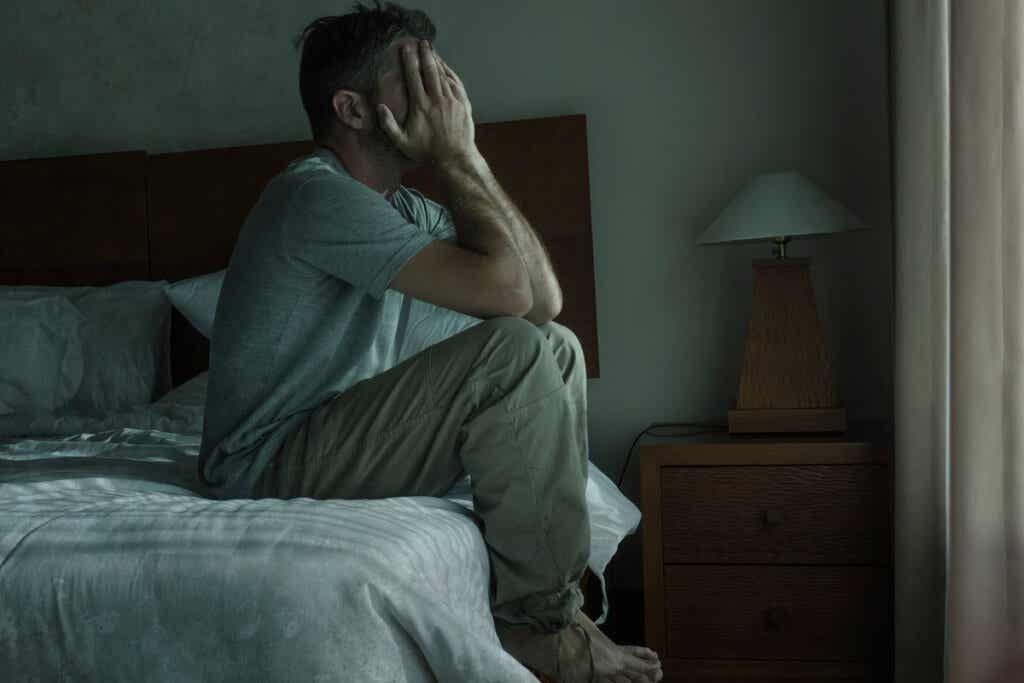(Exploring Your Mind) Intense emotions, such as anxiety and stress, are often behind the phenomena of sleepwalking. We’ve written this article so that you can learn a little more about this particular link.
Related The Emotional Self-Control Over Anxiety
by Staff Writer, October 17th, 2021
Sleepwalking and stress are closely related. While this particular sleep disorder is more common in children, adults can also experience it at different stages of their life. The most common triggers are exhaustion, insomnia, health problems, and, more particularly, emotional factors.
To date, the relationship between sleepwalking and stress hasn’t been studied much by science. However, we now know that stress and anxiety increase the appearance of parasomnias. For this reason, anyone who suffers or who has suffered from sleepwalking between the ages of 20 and 50 need to ask themselves a couple of specific questions.
These are: Do you have any concerns right now? Was there something worrying you when you experienced your previous incidences of sleepwalking? As a rule, the emotional factor will correlate significantly with what neurologists call NREM sleep arousal disorders. We talk about them in this article.
Sleepwalking can have various origins. They might be genetic or emotional. They could also be associated with the side effects of some medications such as zolpidem.

How are sleepwalking and stress related?
Experts estimate that sleepwalking is a common experience from the ages of three up to 13 years. Then, it reduces, as the individual acquires a deeper and more adult-like type of sleep pattern. Nevertheless, this doesn’t mean that adults become completely free of this particular parasomnia. As a matter of fact, this never happens, for various reasons.
The University of Helsinki (Finland) conducted a study that suggests sleepwalking is a genetic condition. Indeed, it’s common for groups of siblings to suffer from it. This tendency will have been inherited from a parent.
Another interesting fact is that there are people who, having never experienced episodes of sleepwalking in childhood, start to do so in adulthood. It seems that high levels of stress, such as job loss, an emotional breakdown, or the loss of a loved one can activate the neural mechanisms that govern this experience.
Parasomnias and emotional disorders
Parasomnia is a behavioral disorder. It involves unusual and undesirable events or experiences that disrupt sleep. It includes confused awakenings, sleep (night) terrors, and sleepwalking episodes. Although it’s true that those who experience this last phenomenon don’t actually wake up as such, they do find themselves in a state that’s somewhere between sleep and wakefulness.
Mariano Chóliz, from the University of Valencia (Spain), wrote a book entitled Anxiety and Sleep Disorders. In this book, he claimed that variable sleepwalking and stress appear more frequently in adulthood. It usually reappears between the ages of 20 and 50 years.
In addition, the University of Hong Kong (China), conducted research that stated sleepwalking is common in people with psychiatric problems. Furthermore, sometimes, the medications used to treat high states of anxiety and insomnia, increase the prevalence of adult-onset parasomnias. One such medication is zolpidem.
Sleepwalking and post-traumatic stress disorder
Post-traumatic stress disorder is a psychological condition that occurs after an experience of great emotional impact. The victim might have suffered abuse, sexual abuse, witnessed or experienced a violent event, or, even more commonly, suffered the sudden loss of a loved one. Indeed, it’s on the foundations of these types of experiences that post-traumatic stress is built.
Sleepwalking and post-traumatic stress disorder are also closely related. Symptoms of post-traumatic stress are very broad. However, they often include parasomnias. In fact, people suffering from post-traumatic stress often suffer a wide range of parasomnias, from night terrors to sleepwalking episodes. Furthermore, in these cases, the parasomnias are extremely emotionally intense. This is because the individual tends to relive the traumatic event while they’re sleeping.
The “fear” factor and sleep disturbances
We know that sleepwalking and stress tend to go hand in hand. However, it’s important to dig a little deeper. Sleepwalking arises especially in times of high emotional intensity. In fact, the most common triggers tend to be fear, highly stressful situations, and anxiety.
Feeling threatened, experiencing high uncertainty, remembering a shocking experience. These kinds of situations leave imprints on the brain that increase sleepwalking episodes. This emotional component causes an alteration during stage four of NREM sleep. It means the person may get up during the night while they’re, effectively, asleep.

How to reduce this type of parasomnia
There are no treatments for parasomnias. However, we know that sleepwalking in children disappears over time. On the other hand, in adults, the key is to identify the triggers that cause it. For this reason, it’s important to note that when a person experiences these events, they’re most likely to be going through a stressful time in their life.
What can be done in these cases? Here are some key points:
- Identify any pre-existing health problems.
- Identify stressors that cause these nighttime problems.
- Check what type of medication the individual is taking. This is because there are drugs that can cause sleepwalking.
- Learn sleep hygiene techniques. For example, cognitive behavioral therapy can be very effective for sleep problems.
Finally, since sleepwalking and stress are significantly related, the sufferer shouldn’t hesitate to ask for expert help. Because, if they treat the triggers, they’ll gain quality of life and well-being.
Support this site so we can continue to tell you the truth.DONATE HERE
Stillness in the Storm Editor: Why did we post this?
The news is important to all people because it is where we come to know new things about the world, which leads to the development of more life goals that lead to life wisdom. The news also serves as a social connection tool, as we tend to relate to those who know about and believe the things we do. With the power of an open truth-seeking mind in hand, the individual can grow wise and the collective can prosper.
– Justin
Not sure how to make sense of this? Want to learn how to discern like a pro? Read this essential guide to discernment, analysis of claims, and understanding the truth in a world of deception: 4 Key Steps of Discernment – Advanced Truth-Seeking Tools.
Stillness in the Storm Editor’s note: Did you find a spelling error or grammatical mistake? Send an email to [email protected], with the error and suggested correction, along with the headline and url. Do you think this article needs an update? Or do you just have some feedback? Send us an email at [email protected]. Thank you for reading.
Source:
https://exploringyourmind.com/sleepwalking-and-stress-are-related/
Support our work! (Avoid Big Tech PayPal and Patreon)DIRECT DONATION

Leave a Reply